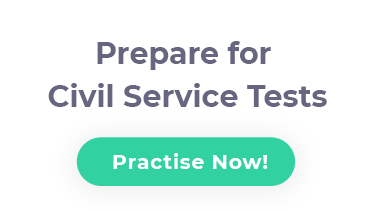Public Health Speciality Training: Watson Glaser, RANRA, SJT & Assessment Centre Online Preparation – 2025

What Is the Selection Process for Public Health Speciality Training?
The recruitment process for public health specialists is highly competitive and extremely difficult. There are about three stages, and each one measures the cognitive capacity and behaviour of the applicants. The process can take anywhere from two weeks to two months.
The applicants are given numerical scores throughout each step of the selection process. In the end, the final scores are calculated and the applicants with the highest are offered entry into the programme.
Application Process
Before applying, applicants should ensure that they meet all of the entry requirements. These criteria are very strict and specific, applicants who fail to meet these standards are barred from consideration. Some of the requirements include the following:
- MBBS or equivalent medical qualification or a first degree
- Fluency in English both writing and speaking
- Evidence of career progression
- And more
Additionally, there are a handful of questions that must be answered by the applicant. These questions may include:
- What experience do you have as a public health specialist? What did you learn from this experience and how did it develop your skills for this programme?
- How do your strengths make you a good candidate for this field?
- Describe a time when you had to communicate with people who had different levels of knowledge about a certain situation. How did you handle this? Was your approach successful?
Assessment Centre
After the applications are reviewed to ensure that the requirements are met, the applicant is invited to take a series of assessments. These assessments are administered by Pearson Vue and must be taken at one of their assessment centres.
The results of the assessments determine if a candidate will proceed to the next stage of the recruitment process. If an applicant has an above-average score, they will be shortlisted for the selection centre.
The Public Health Speciality Training assessments measure aptitude and personality among other traits. All in all, the assessments take almost two hours to complete. These assessments are listed below.
- RANRA
The RANRA, short for Rust Advanced Numerical Reasoning Appraisal, is a forty-minute assessment that evaluates the candidate’s numerical reasoning skills. This assessment has two sections. The first section is a comparison of different amounts. Following these amounts is a statement providing further instructions, then a handful of answer choices. The second section includes two statements that must be compared and analysed for one of the five solutions given. The results of the RANRA informs the recruiters of the candidate’s analysis, deduction, and interpretation skills.
- Situational Judgment Test (SJT)
This SJT was designed to measure the precise behavioural skills necessary to be successful in this field. This test helps the recruiter get an idea of how the candidate performs in stressful situations and how they care for patients. The SJT has fifty questions and ten hypothetical scenarios. These hypothetical scenarios are based on common occurrences in the public health field or possible problems one might encounter on the job. The SJT has two sections. The first section presents a scenario followed by a proposed action. The test taker must rate how appropriate the action was as well as how likely they are to have taken that same action. The second section provides the hypothetical scenario, but this time the candidate must choose from a list of actions how they would respond to the situation. Applicants have an hour and forty minutes to finish the assessment.
- Watson-Glaser
The Watson-Glaser is a critical thinking test with a thirty-minute time limit. There are five sections: argument evaluation, deduction, inferences, recognition of assumptions, and drawing conclusions. Each question is multiple choice and formatted similarly. There is a statement detailing a hypothetical scenario. Subsequently, there is a proposal—this proposal could be an argument, assumption, or conclusion—that the applicant must rate based on its relation to the statement.
Assessment Centre
The selection centre is the final stage of the recruitment process for public health specialists. Applicants will encounter three activities during this stage of the process. These activities include:
- Interview
The interview is actually a series of six, ten-minute interviews. The candidates will rotate between panels of interviewers who ask an array of questions. These interviewers are usually hiring managers, trained assessors, and public health professionals. The questions will be competency-based and technical. Candidates should also do background research on the programme and current industry trends.
- Written Exercise
The written exercise appraises the candidate’s ability to comprehend and analyse information. The tasks include prioritising information and proposing a course of action for a hypothetical scenario.
- Group Exercise
Each group is given written instructions that ask the candidates to perform a challenging task. This task directly relates to the public health sector and each candidate must work with one another to complete the challenge. An assessor will sit with the groups and evaluate the candidates on how well they work with one another. Other traits they assess include communication, teamwork, and leadership skills.
How to Prepare for the Public Health Speciality Training Online Assessments
The assessment centre is one of the most difficult parts of the public health speciality training recruitment process. Applicants must meet the competitive benchmarks in order to make it to the next stage. Making sure that you are well-prepared for these assessments is a great way to meet these benchmarks and put your mind at ease.
A popular method for preparing is using online practice tests. These tests will simulate Pearson Vue’s assessments to help you become acquainted with the content and structure. Practising with these assessments is a great way to find a steady pace that assists you in answering the questions both accurately and efficiently. You also get to see your scores at the end. These scores serve as an estimate for how you will do on the actual tests. They can also help you get an idea of how much more practising you need to do.
Preparing for the SJT is a little more difficult because, technically, there are any definitively correct answers. However, the programme does have an outline of the competencies and qualities they look for in candidates. Using this outline can help you align your answers to the programme’s expectations. This will make you a more favourable candidate for the programme. Doing background research on the programme and the job is one of the most effective ways to prepare for the SJT.
Public Health Speciality Training Recruitment Process Tips
Understanding what the programme is looking for in their candidates is an important step for preparing for the selection process. Some selection criteria include:
- Clinical Knowledge and Expertise
- Technical Skills
- Academic Research Skills
- Personable
- Professional Integrity
- Commitment to the Field
During the selection process, do your best to demonstrate these qualities. Include examples in your answers to competency-based questions and try to exude these traits during the selection centre as best you can.
Other common interview questions include:
- What is public health? Why is it important?
- What are the medicines used to treat (disease)? How is medicine to treat (disease) administered? What are the standard dosages? How do the drugs affect the body?
- How do you keep up to date with new laws and events affecting the public health sector?
- Describe a time you have had to compromise your ethics.
- Describe a time you have disagreed on a solution with a colleague or teammate.
- Describe a time you have had to deal with an irate patient. How did you handle the situation
It is crucial for your success that you prepare for the selection process the best you can. This means looking at each stage individually and creating a plan to conquer it. Remember to review the programme’s values and ethics and to practice for those tests. Best of luck!

